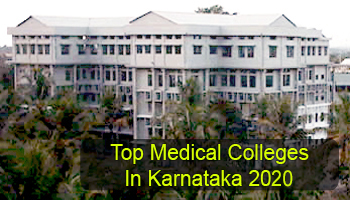Everything You Need to Know About the NEET 2023 Cut-Off
We understand that NEET 2023 has just concluded and that there is likely a lot of anxiety, worry, and excitement in the air. As a result, you probably want to know what the cut-off scores are. In this article, we’ll provide you all the details you need to know about the NEET cut-off score, the variables that determine it, and how to check it.
In India, candidates wishing to pursue a career in medicine must pass the National Eligibility and Common Entrance Test (NEET). The minimum score needed to pass the exam, or the NEET cut-off score, is required. Let’s examine the NEET cut-off score in more detail for 2023.
NEET 2023 Cut-Off Score
The National Testing Agency (NTA) is yet to release the NEET 2023 cut-off score. The difficulty level of the exam, the number of candidates that took the exam, and the total number of seats available are some of the variables used to establish the cut-off score.
Different NEET 2023 Cut-Off Score Types
The qualifying cut-off and the admission cut-off are the two different sorts of NEET cut-off scores. The minimum score needed to be qualified for the NEET counselling procedure is known as the qualifying cut-off. On the other hand, the admission cut-off is the minimum score necessary for admission to different medical colleges.
How to Check the 2023 NEET Cut-Off?
The NTA’s official website will publish the NEET cut-off score for 2023. Candidates can check the cut-off score by following these steps:
- Visit the official website at https://neet.nta.nic.in/.
- Select the notifications tab, and then select the link for the NEET cut-off in 2023.
- A new window will open in step three. Make use of your login information.
- Download and save the cut-off file on your computer.
What Affects the NEET Cut-Off
The NEET cut-off score is influenced by various factors. Here are a few of the most important considerations in more detail
- Number of candidates who took the NEET exam: The cut-off score increases with the number of people who take the exam.
- Exam complexity – If the exam is challenging, the cut-off score is probably lower, and vice versa.
- Total number of seats available – The number of seats available is a key factor in establishing the cut-off score.
NEET 2023 Qualifying Marks (Expected)
| Category | Marks | Cut-off Percentile |
| General/ UR / EWS (Unserved/ Economically Weaker Sections) | 720-138 | 50th |
| OBC (Other Backward Classes) | 137-108 | 40th |
| SC (Scheduled Castes) | 137-108 | 40th |
| ST (Scheduled Tribes) | 137-108 | 40th |
Category Wise NEET 2023 Cut-off (Expected)
The table below shows the category-wise marks required to clear the NEET examination.
| Category | Qualifying percentile |
| UR / EWS (Unserved/ Economically Weaker Sections) | 50th percentile |
| SC (Scheduled Castes) | 40th Percentile |
| ST (Scheduled Tribes) | 40th Percentile |
| OBC (Other Backward Classes) | 40th percentile |
| UR / EWS &
PH (Unreserved / Economically Weaker Sections – Physically Handicapped) |
45th percentile |
| SC – PH (Scheduled Castes Physically Handicapped) | 40th Percentile |
| ST – PH (Scheduled Tribes Physically Handicapped) | 40th Percentile |
| OBC – PH (Other Backward Classes Physically Handicapped) | 40th Percentile |
Previous Years NEET Cut-off
General Category candidates
The Year-wise cut-off is mentioned below:
| Year | NEET cut-off Scores |
| 2022 | 715 – 117 |
| 2021 | 720 – 138 |
| 2020 | 720 – 147 |
| 2019 | 701 – 134 |
OBC Category candidates
The Year-wise cut-off is mentioned below:
| Year | NEET cut-off Scores |
| 2022 | 116 – 93 |
| 2021 | 137 – 108 |
| 2020 | 146 – 113 |
| 2019 | 133 – 107 |
SC / ST Category candidates
The Year-wise cut-off is mentioned below:
| Year | NEET cut-off Scores |
| 2022 | 116 – 93 |
| 2021 | 137 – 108 |
| 2020 | 146 – 113 |
| 2019 | 133 – 107 |
BODMAS EDUCATION wishes good luck to all the candidates, for their successful careers


























